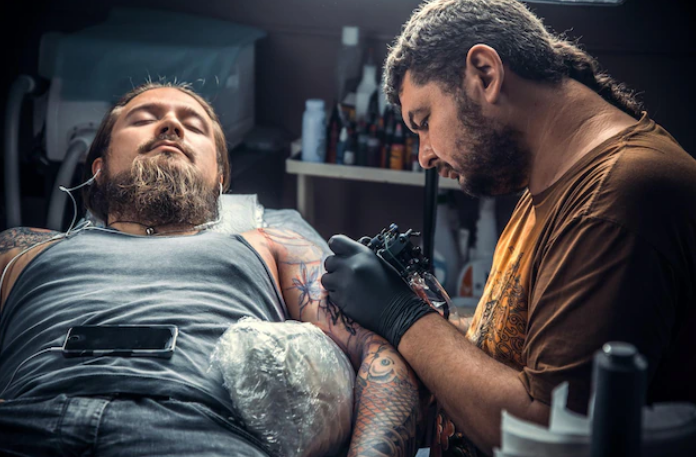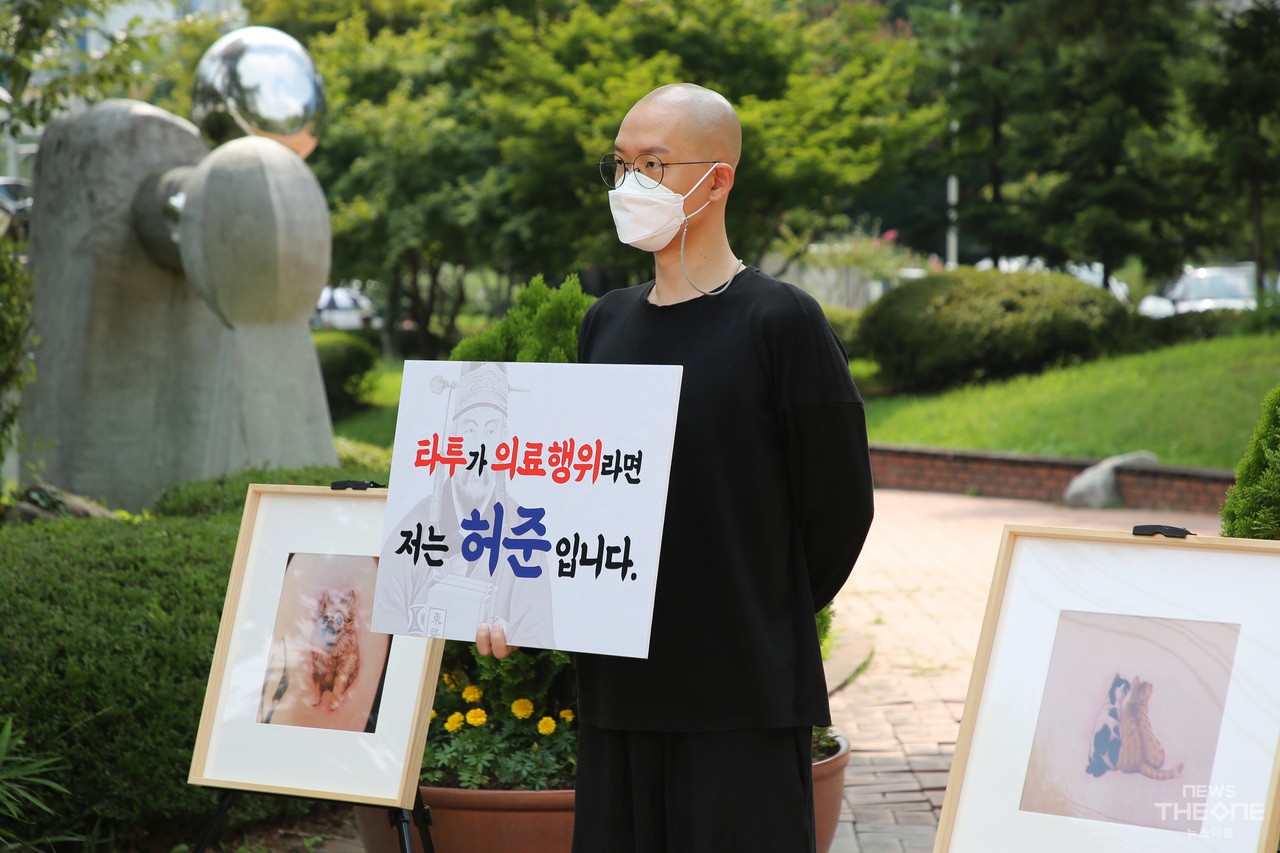Korea is the only country in the world, where getting a tattoo is illegal. The tattooists who don’t have a medical license cannot legally operate their business in the country. According to the Korean Tattoo Association, the tattoo market has an estimated to worth $980,000,000 US dollars, while the Ministry of Health and Welfare said there are 350,000 tattooists operating illegally within the country, with a client base of 13 million. In Korea, many people get tattoos, even though it is illegal. Under Korean law, tattooing is considered a medical procedure and therefore should only be conducted by a qualified medical practitioner. Violators of the law can see fines up to $40,000 US and up to two years in prison. Several attempts have been made to legalize tattooing, but they all failed. In March of this year, the Constitutional Court of Korea (CCK), reaffirmed that non-medical tattooing is illegal. However, I am in favor of the legalization of tattoos for the health and safety of recipients, to solve tax problems, and to ensure the freedom of choice of occupation.
 |
| ▲ The tattooist is doing a tattoo on his client. (Photo from Freepik) |
For the health and safety of people, tattoos should be legalized. Tattoos are a permanent drawings on the skin made by using ink and needles. Justices in the Constitutional Court in Korea said tattooing carries a risk of like infection and other side effects and only medical personnel are trained to deal with these conditions. However, the number of people reaching out to get tattoos is growing along with society’s move towards a greater sense of individuality and an increasing acceptance of the art. However, there is no system for management and supervision of the procedures, leaving people vulnerable to conditions of poor hygiene, with no accountability for irresponsible tattooists. By maintaining the illegal status of the process, the possibility of tattoo studios with poor hygiene conditions and the risk of infection, remains high. People who have sought out tattoos and suffered from side effects, find it difficult to receive compensation for their troubles. For these reasons, it is necessary for the government to produce and distribute hygiene and ensure safety guidelines and the proper education of tattooists. In addition, periodic hygiene inspections would protect the health and safety of clients.
To solve tax problems, tattoos should be legalized in Korea. Tattoo businesses and tattooists can register their operations under an existing Korean industry classification. The National Tax Service also draws taxes by designating the payment subject code of the individual income tax. However, if they do, they can be punished because tattooing is illegal. There is a great paradox between an administration that considers tattooing an occupation, yet maintains a law that stipulates the practice is illegal. The conflict acts as a disincentive for tattooists to pay any taxes.
Lastly, tattooing should be legalized to guarantee freedom of occupational options. According to the Constitution of Korea, every person has the freedom to choose their career. Tattooists are sometimes subjected to intimidation because their job is illegal. Some tattooists give up their jobs due to the risk of punishment. This is arguably an infringement on their freedom. Being a tattooist harms nobody, so there should be no harmful effects if it were to be legalized. To respect their career choice, the government should legalize the profession, and make the necessary changes to the law, so that they can operate without fear of repercussions.
 |
| ▲ The president of the Tattoo Union is doing a 1-men protest. (Photo from News THE ONE) |
In the United States, tattoos are managed by the Food and Drug Administration (FDA). The tattoos for defining dyes, cosmetics, and adding pigments all operate under the supervision of this government agency. In California, the ‘Safe Body Art Act’ deals with tattooing within the state. This act ensures tattooist provide their clients with information regarding precautions, side effects, and other general health and safety information surrounding the procedure. They require a hepatitis B vaccination certificate and a certificate in the Bloodborne Pathogen Tattoo course to reduce the risk of infection. To maintain a hygienic environment, they regulate treatment sites, protective equipment, sterilization, and waste disposal. In New York, ‘Public Health Law Article 4A: Regulation of Body Piercing and Tattooing’ specifies the need for single-use needles and approved ink. Tattooists should present all single-use needles in a sterile and sealed package that is used in tattooing and explain they use only approved ink. Clients must sign a form confirming these requirements were met and a copy of the confirmation form should be given to the client, while another is kept by the tattoo studio for a minimum of 7 years. Like California and New York, Korea should also enact rules surrounding health and safety, measures designed to prevent infections and licensing requirements including core education training.
In September 2020, the Supreme Court of Japan ruled that tattooing was not a medical procedure as defined by the Medical Service Act. This leaves Korea as the only remaining country to consider tattooing as an illegal activity. Tattooing is a method of expressing one’s beliefs and individuality. The world is changing rapidly, and it is no longer appropriate to use the excuses of former generations to dissuade you from the procedures of today. We should reconsider our country’s position and focus instead on how much our social perception of tattoos has changed. Tattoo laws should be enacted to protect the freedom and safety of tattooists and their clients, based on proven laws already in place in other countries around the world.
최은지 dankookherald@gmail.com

![[Campus Magnifier] Let's Surf the Library!](/news/photo/202404/12496_1765_4143.jpg) [Campus Magnifier] Let's Surf the Library!
[Campus Magnifier] Let's Surf the Library!
![[Campus Magnifier] Let's Surf the Library!](/news/thumbnail/202404/12496_1765_4143_v150.jpg)





